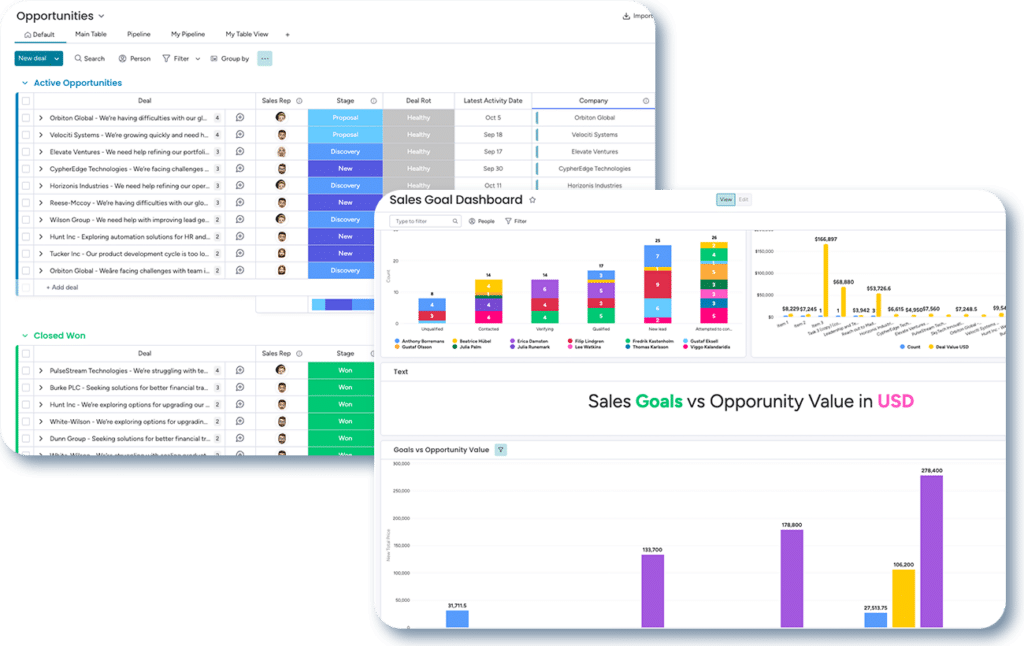Introduction to Choosing the Right CRM Software
In today’s rapidly evolving business landscape, the role of Customer Relationship Management (CRM) software has become more crucial than ever. As organizations strive to nurture customer relationships, enhance sales efficiency, and streamline their marketing efforts, selecting the right CRM software emerges as a pivotal decision. This choice can significantly impact the operational success and customer satisfaction levels of a business. Hence, in this blog post, we’ll cover the top features to consider when evaluating CRM software.
In this comprehensive guide, we will delve into the top features to consider when evaluating CRM software. Understanding these features is not just about ticking boxes on a list; it’s about finding a solution that aligns perfectly with your business needs, objectives, and the unique dynamics of your customer interactions.
From startups to established enterprises, the CRM software market offers a myriad of options, each boasting its unique set of features and benefits. However, the abundance of choices can often be overwhelming. Therefore, this blog post aims to simplify your decision-making process by highlighting the essential features that should guide your evaluation. Whether it’s customization capabilities, integration options, or advanced analytics, each aspect plays a significant role in how effectively a CRM tool can support and propel your business goals.
As we explore these top features to consider when evaluating CRM software, keep in mind that the best CRM solution is one that not only offers comprehensive functionality but also aligns seamlessly with your business processes, enhances your team’s productivity, and ultimately drives growth and customer satisfaction.
In the following sections, we will break down these features in detail, providing you with the insights and knowledge necessary to make an informed decision in your CRM software selection journey.
Understanding Your Business Needs
Before diving into the myriad of features that modern CRM software offers, it’s essential to start with a foundational step: understanding your business needs. This understanding is critical in selecting a CRM system that aligns with your specific requirements and objectives. Here, we’ll explore key considerations to help guide your decision.
Identifying Your Business Size and Industry
- Small Businesses: For smaller enterprises, a CRM with basic features like contact management and email integration might suffice. These businesses need CRM software that is easy to use and quick to implement.
- Mid-sized to Large Enterprises: Larger organizations often require more robust systems with advanced analytics, increased customization, and greater scalability to handle a larger volume of customer data and more complex sales processes.
- Industry-Specific Needs: Depending on your industry, certain CRM features might be more beneficial than others. For instance, a B2B company might prioritize lead and pipeline management, while a retail business might focus on customer engagement and loyalty programs.
Assessing Business Challenges and Goals
- Sales Efficiency: If your goal is to improve sales performance, look for CRMs that offer strong sales tracking, forecasting, and pipeline management tools.
- Customer Service: If providing outstanding customer service is your priority, consider CRMs with strong service and support features like ticketing systems and knowledge bases.
- Marketing Integration: For businesses focusing on marketing, CRM software that offers seamless integration with marketing tools and analytics can be crucial.
In summary, understanding your business size, industry, and specific challenges and goals is key when evaluating CRM software. This understanding ensures that you invest in a system that not only possesses the top features but also aligns perfectly with your business’s unique needs.
Customization and Flexibility
One of the top features to consider when evaluating CRM software is its ability to customize and adapt to your business’s unique requirements. Customization and flexibility in a CRM system are pivotal for ensuring that the software can evolve and scale with your business.
The Importance of Customizable Features
- Adapting to Business Processes: Every business has its unique processes and workflows. A CRM that allows for customization ensures that you can tailor the software to fit these specific processes, rather than forcing your business to adapt to the software.
- Personalized Customer Interactions: Customization capabilities allow for a more personalized approach to customer interactions. Whether it’s custom fields in customer profiles or tailored communication templates, these features enable businesses to connect with customers more effectively.
Examples of Customization Benefits for Different Business Models
- B2B Companies: For B2B businesses, customization might involve integrating complex sales cycles and approval processes within the CRM, ensuring that the software supports intricate B2B interactions and long-term relationships.
- E-commerce Platforms: E-commerce businesses can benefit from customization in areas like inventory management integration, customer purchase history tracking, and personalized marketing campaign tools.
Flexibility for Future Growth
- Scalability: As your business grows, your CRM should be able to grow with you. A flexible CRM system can scale up to accommodate more users, increased data, and additional functionalities without significant overhauls.
- Integration with New Technologies: The best CRM systems are those that stay adaptable and can integrate with emerging technologies and platforms. This ensures that your business stays at the forefront of innovation.
In conclusion, the customization and flexibility of CRM software are critical in ensuring that the tool you choose not only serves your current needs but also has the capacity to adapt and grow alongside your business. This makes it one of the top features to consider when evaluating CRM software.
Omnitas Newsletter
Sign up for our monthly newsletter to stay up-to-date on our latest blog articles, videos and events!
Thank you!
You have successfully joined our subscriber list.
Core Features of Effective CRM Software
In the quest to identify the top features to consider when evaluating CRM software, it’s crucial to understand the core functionalities that define an effective system. These features form the backbone of any CRM software, enabling businesses to manage customer relationships efficiently and drive growth.
Contact and Lead Management
- Centralized Customer Information: A core feature of CRM software is its ability to store comprehensive customer information in a centralized database. This includes contact details, communication history, purchase records, and customer preferences.
- Efficient Lead Tracking: Effective CRM systems offer robust lead tracking mechanisms, allowing businesses to capture, organize, and follow up on leads systematically. This feature is essential for turning prospects into customers.
Sales and Marketing Automation
- Streamlining Sales Processes: CRM software should automate key sales processes like order processing, quote creation, and sales reporting. This automation reduces manual workloads and increases sales team efficiency.
- Targeted Marketing Campaigns: Another core feature is the ability of the CRM to support targeted marketing efforts. This includes segmentation tools, campaign management features, and analytics to track campaign performance.
Data Analysis and Reporting Tools
- Insightful Analytics: CRM software should offer detailed analytics and reporting capabilities. This enables businesses to gain insights into sales trends, customer behavior, and overall business performance.
- Customizable Reports: The ability to customize reports allows businesses to focus on metrics that are most relevant to their specific goals and strategies.
Integration with Other Tools
- Seamless Connectivity: An effective CRM system should easily integrate with other business tools such as email platforms, social media, accounting software, and more. This integration ensures a streamlined workflow across various business functions.
- API Access: Advanced CRM solutions offer API access for even deeper integration with third-party tools and custom systems, further enhancing their utility.
User Experience and Support
- Intuitive Interface: A user-friendly interface is essential for ensuring that all team members can efficiently use the CRM software.
- Reliable Customer Support: Good CRM providers offer strong customer support, including training, documentation, and responsive customer service.
Security and Compliance Features
- Data Security: Given the sensitive nature of customer data, CRM software must have robust security features to protect against data breaches and cyber threats.
- Compliance with Regulations: Compliance with data protection laws such as GDPR is also a critical feature of any CRM system.
In summary, an effective CRM software should encompass these core features, offering a comprehensive suite of tools designed to optimize customer relationship management, enhance sales and marketing efforts, and provide valuable business insights. These features collectively ensure that the CRM software not only addresses immediate business needs but also supports long-term growth and success.
Conclusion: Making an Informed CRM Software Choice
As we wrap up our exploration of the top features to consider when evaluating CRM software, it’s clear that the right CRM solution can be a game-changer for your business. It’s not just about managing customer information; it’s about leveraging a tool that aligns with your business strategy, enhances your customer relationships, and drives growth.
The journey to selecting the ideal CRM software should be guided by a thorough understanding of your business needs, an appreciation for the core features that constitute effective CRM systems, and an insight into how these features can transform your customer relationship management. Whether it’s customization and flexibility, robust analytics, or seamless integration with existing systems, each feature plays a pivotal role in ensuring that your CRM software is not just a database, but a powerhouse of customer insights and business intelligence.
Remember, the most suitable CRM software for your business is one that not only ticks all the boxes in terms of features but also feels right in terms of user experience and aligns with your long-term business vision. It’s an investment in your company’s future, a step towards enhanced efficiency, and a commitment to exceptional customer engagement.
We hope this guide has provided you with valuable insights and a clearer direction in your quest for the perfect CRM software. If you found this article helpful and wish to stay informed on similar topics, we invite you to subscribe to our monthly newsletter below. By doing so, you’ll gain access to a wealth of information on marketing, sales, CRM software, and much more – all designed to help you make informed decisions and stay ahead in the dynamic world of business.













